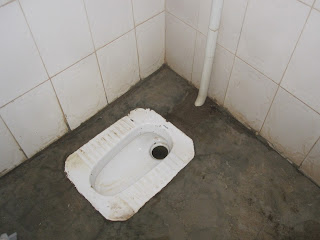There are fields of sunflowers everywhere. They are spectacular! And sunflowers are
planted next to, and among, corn stalks.
The horticulturists among you know why; I just think they’re beautiful!
Mount Kilimanjaro is like a magic mountain. Much of the time it is hidden by clouds. In
2013, we saw it for the first time as we took off from Arusha to go home. But
when it appears – as it did on Wednesday, very clearly, it is amazing –
snow-topped, with a gradual descent into lots of hills.
Apparently, it is the job of Maasai women to find and carry
firewood back home. Frequently, we see
colorfully dressed Maasai women carrying bunches of big sticks (almost logs) on
their heads and shoulders.
It is the job of men and boys to tend the cattle and goats.
The men wear colorful red plaid blankets. The boys range in age from about six
to 14 or 15. It seems clear that they
are not in school.
We are about 4 kilometers from the border of Kenya. On
Wednesday, we drove through a border control area, where police checked for
border crossers.
It is a 2½-hour drive to a cash machine. We found that out on Wednesday.
The waiters at restaurants in Tanzania come around with soap
and bowls of water, before the meal, so you can wash your hands.
This is a potato-growing area. We saw people in the fields
picking potatoes and putting them into huge sacks for export. Toward late
afternoon, a truck drove along the road, picking up the sacks to be transported
to their destination.
It is common for Maasai men to have more than one wife. Each
wife and her children live in a structure built of cow dung and ash, with a
straw roof, called a “boma.” The bomas for one husband are close together. The man plants a stick outside the boma of
the wife with whom he wishes to stay each night.
Most toilets here are holes in the ground, fondly called,
“squatty potties.” That’s what we have where we are staying. There is a learning curve involved in using
them. We are becoming proficient!
 |
| A "squatty potty." |
A variety of acacia grows in profusion in this area. This
variety has lots of sharp thorns, about 2” long, and round, brown pods about 1
½” in diameter. A kind of insect lives
inside the pod, and when giraffes try to eat the acacia, the insect comes out
and bites the inside of the giraffe’s mouth.
As a result, giraffes learn quickly to avoid this acacia.
 |
| Acacia with pods and thorns. |
No comments:
Post a Comment